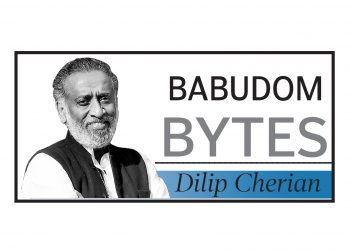Former Enforcement Directorate (ED) chief Sanjay Kumar Mishra has been appointed a full-time member of the Economic Advisory Council to the Prime Minister (EAC-PM). Yes, an investigator is now advising on economic policy. Are we running out of economists, or is the economy now a case for forensic analysis?
Before we jump to conclusions, let’s give credit where it’s due. Mishra’s tenure at the ED was marked by high-profile investigations and a no-nonsense approach to financial malfeasance. His experience in navigating the murky waters of economic offences could bring a fresh perspective to the EAC-PM. After all, understanding the underbelly of financial crimes might offer unique insights into the loopholes that plague our economy.
But here’s the rub: Is this appointment a testament to a dwindling pool of economists willing to step into advisory roles? The untimely demise of Bibek Debroy, the former chairman of the EAC-PM, left big shoes to fill. Debroy was not just an economist; he was a polymath who seamlessly blended economic theory with cultural scholarship. Replacing such a towering figure is no small feat.
The reluctance of seasoned economists to enter the fray of policy advising is palpable. The political landscape can be treacherous, and the role of an economic advisor often involves walking a tightrope between academic integrity and political pragmatism. It’s no wonder that professionals might hesitate to dive into such turbulent waters. Moreover, the current ensemble of economic advisors seems to lack the heft and gravitas that figures like Debroy brought to the table. While fresh perspectives are invaluable, the absence of seasoned economists raises questions about the depth of economic discourse within the council.
So, what does Mishra’s appointment signify? Is it an acknowledgment that our economy needs a watchdog’s scrutiny, someone adept at identifying and plugging financial leaks? Or is it a subtle nod to the idea that traditional economic strategies need a shake-up, perhaps through the lens of law enforcement experience?
Sign of changing priorities in PMO?
A diplomat as the Prime Minister’s private secretary? That’s a move worth talking about. Nidhi Tewari, a 2014-batch IFS officer, has just been appointed to this key role, a position usually dominated by IAS officers. The Prime Minister’s Office (PMO) is shaking things up.
At just 24, Tewari secured the 96th rank in the UPSC civil services examination, a feat that set her on a trajectory through India’s diplomatic ranks. Her recent role as deputy secretary in the PMO has evidently prepared her for this significant step up.
But this appointment raises an interesting question: Is the government signaling a shift in how Narendra Modi manages both domestic and foreign policy?
Traditionally, this role has been the domain of Indian Administrative Service (IAS) officers, the generalists who navigate the vast machinery of governance. The IFS, on the other hand, is typically the cadre of diplomats, the nation’s face to the world. This appointment suggests a subtle yet intriguing shift in the PMO’s dynamics.
In an era where foreign policy and economic diplomacy are deeply linked to domestic priorities, having an IFS officer in this position might be a strategic masterstroke. Trade deals, global alliances, and India’s international standing are now as crucial as internal governance. And let’s not forget—Modi’s global outreach is a key part of his leadership style.
This isn’t the only unconventional appointment in the PMO. We’ve seen a trend of bringing in expertise from outside the usual IAS-dominated circles. If this continues, we might be witnessing a quiet but significant shift in the way India’s highest office functions.
Powerful response to prejudice
Let’s be honest—India’s obsession with fair skin runs deep. It’s in our movies, our marriage ads, and even in casual compliments. But when Kerala Chief Secretary Sarada Muraleedharan was hit with a colourist remark, she didn’t just brush it off—she turned it into a masterclass in self-assurance and dignity.
Responding to a social media comment comparing her leadership to that of her predecessor (and husband) in terms of “black vs. white,” Muraleedharan didn’t play the victim. Instead, she reclaimed blackness. She called it powerful, all-absorbing, universal. “Black is the all-pervasive truth of the universe,” she wrote. A statement so poetic that it almost makes you wonder why society ever tried to vilify it in the first place.
The IAS Association stood firmly behind her, rightly calling out the pettiness of judging an officer’s competence by skin colour. But the fact that such a defence is needed in 2025 speaks volumes. Prejudice against dark skin isn’t just a remnant of the past—it’s alive, loud, and insidious. And it’s not just about colour; it’s often intertwined with sexism, class bias, and deep-seated social conditioning.
Muraleedharan’s response wasn’t just about shutting down one nasty remark—it was about flipping the script entirely. It was a reminder that confidence is the best answer to ignorance. Maybe it’s time the rest of us followed her lead.
